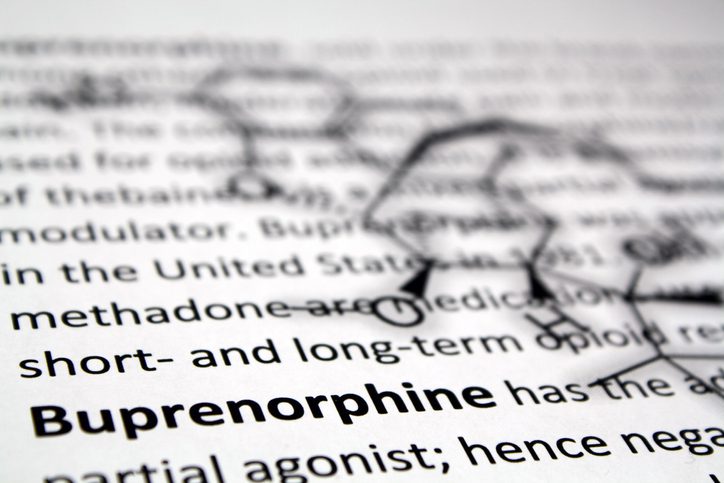“This crystal can save all of mankind! But if it falls into the wrong hands, destruction will surely follow!”
Good Versus Evil
We’ve all seen or read that moment in countless movies and books. The good guys find something of great power—a ring, a crystal, a sword, a wonder drug, a child with amazing powers, whatever—and have to keep it away from the bad guys so that they don’t use it to complete their nefarious scheme. Or it’s the other way around: the bad guys already have the thing and the good guys have to take it from them before everything is destroyed.
Though this plot device is probably overused, it is interesting to think about things that can be good if used in one way and bad if used in another. And there are plenty of things in the real world that could be described that way.
One of them is a drug known as Suboxone.
In the right hands, Suboxone can be a force for good, helping those with a substance use disorder centered on opioids to overcome their addiction. But in the wrong hands, Suboxone can be a force for evil, upending the lives of those who become addicted to it and making it extremely difficult to give up the drug.
Let’s look at the good and the bad that can come from use of Suboxone.
Suboxone: How It Can Help With a Substance Use Disorder
Suboxone can be used in medication assisted treatment programs to help a person get through the challenges of opioid withdrawal so that they can achieve—and maintain—sobriety. It does this by binding itself to the receptors in the brain that are impacted by drugs like oxycodone, morphine, and heroin. This binding lessens the effect of these other drugs and helps to lessen the extreme cravings that can be difficult to resist during withdrawal. This, in turn, lessens the likelihood of a relapse in the early days of treatment and recovery.
Medication assisted treatment (MAT) has been shown to be an effective way to increase the likelihood that an individual will remain in treatment for the appropriate amount of time, increase the likelihood of finding and/or keeping a job, and decrease the likelihood of illicit drug use. Most importantly, MAT has been shown to lead to higher overall survival rates among those struggling with a substance use disorder.
Wooded Glen Recovery Center is among the many substance use disorder treatment facilities that use Suboxone during the detoxification process as a way to help a person addicted to an opioid get sober. To return to our story from above, we are the good guys who know how to use a powerful item for good purposes.
Suboxone: How It Can Lead to a Substance Use Disorder
We have explained how Suboxone can be used to help with an opioid addiction. But Suboxone itself is an opioid—and that means that just like any other drug in the class (or really any other drug at all) it can be misused. And that misuse can quickly evolve into a substance use disorder.
The physical symptoms of such a substance use disorder may include:
- Nausea, vomiting, and/or constipation
- Slowed respiration
- A feeling of numbness—either physical, emotional, or both
- Apparent drowsiness and sedation or symptoms of being high or intoxicated
Once a person starts to experience those symptoms, they may well be eager to stop taking Suboxone. But it isn’t as simple as all that. If a substance use disorder is in play, then the challenges of withdrawal are likely to be intense and difficult to withstand. They may include:
- Nausea, vomiting, and/or indigestion
- Body and/or muscle aches
- Chills, fever, and/or sweating unrelated to exercise or temperature
- Persistent drowsiness and/or difficulty sleeping
- Headaches and/or concentration difficulties
- Intense cravings for the drug
To extend our metaphor, Suboxone has clearly fallen into the wrong hands if it leads to a substance use disorder complete with significant negative impacts and the rigors of withdrawal.
But there is good news. In many stories involving objects of great power, the bad guys and their hapless victims are redeemed in the end. If you are struggling with Suboxone, you can get on the path to redemption by reaching out for help.
And you already know where that help can be found.
Wooded Glen Can Help You Become the Hero of Your Own Story
When you are caught between addiction and withdrawal, it might seem as though all is lost. But you can be the hero of your own story by taking the essential first step: getting help at a fully accredited treatment facility like Wooded Glen Recovery Center.
We have the expertise and experience necessary to see you through detoxification and rehabilitation. Along the way, we will arm you with the strategies and resources that will serve you well during your recovery journey. And we will help you address any co-occurring mental health disorders that may be contributing to—or have been worsened by—your substance use disorder.
We Are Committed to You
Our commitment to a continuum of care means that you will continue to have access to resources and advice, especially during the challenging early days of your recovery journey. At Wooded Glen, we are ready and able to help transform a story of tragedy into one of ongoing heroics.

